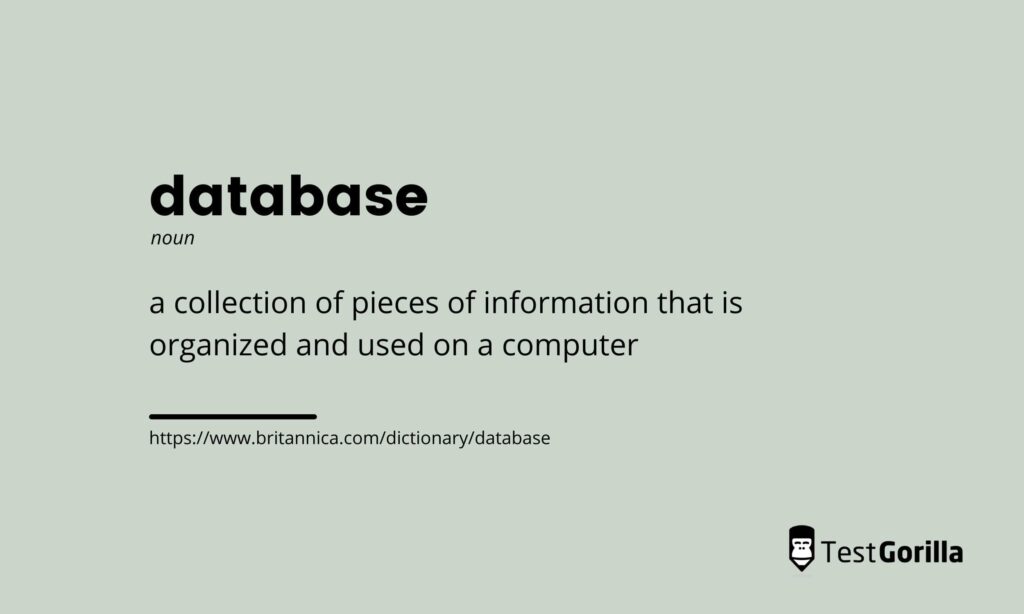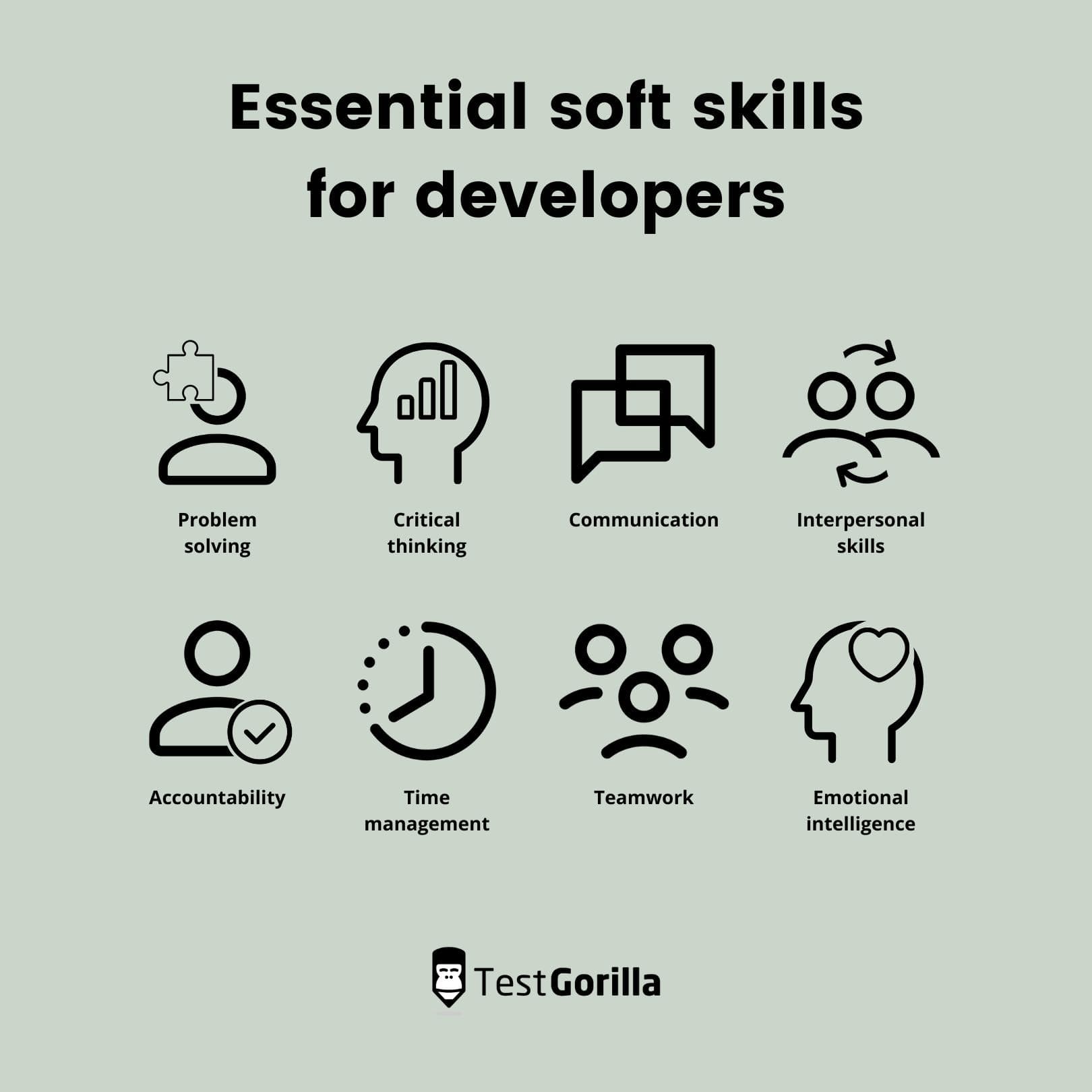How to hire SQLite developers with the right talent for your team
If your next project requires SQLite skills, you may need to hire SQLite developers for your team.
Your new hire should have excellent technical and soft skills and the right values to ensure your business can complete complex projects efficiently.
Finding the right talent can be difficult, but don’t give up just yet!
You can make the hiring process easy by using the right recruitment methods to hire SQLite developers for your team. Find out the best methods in this article.
Table of contents
- What are the advantages of using SQLite for projects?
- Which skills should you search for when you hire SQLite developers?
- How to use a SQL coding test to hire SQLite developers
- 5 handy tips for interviewing SQLite developers
- 5 SQLite interview questions and answers to ask applicants
- What is the average SQLite developer’s salary?
- Find and hire SQLite developers and enhance the quality of your projects
What are the advantages of using SQLite for projects?
One of the main advantages of using SQLite for projects is that developers don’t need to configure the database beforehand. With SQLite, developers can also use dynamic tables and any column to store any type of data value.
Another benefit of using SQLite for projects is that it provides simultaneous access to several database files through a single database connection, which facilitates joining tables and building in-memory databases.
SQLite is a highly useful database engine for your projects. If you’re considering using it for a project, you need skilled SQLite developers to help make the best use of its features.
Which skills should you search for when you hire SQLite developers?
Four vital skills you should search for when hiring SQLite developers are cloud computing services knowledge, version control system skills, NoSQL proficiency, and SQL framework skills.
1. Cloud computing services knowledge
Since cloud infrastructures provide developers with flexible resources to complete projects, your next hire should have the knowledge in cloud computing services needed to take advantage of the benefits of this feature.
2. Experience with version control systems
Version control systems and code versioning tools are essential for successful software development. SQLite developers can complete projects efficiently and control the phases of app development more effectively if they understand how to use tools such as Git.
3. NoSQL proficiency
Programmers should understand how to use multiple databases to complete projects efficiently. When you hire SQLite developers, avoid selecting those who only understand how to use relational databases. Instead, focus on SQLite programmers who can also use NoSQL systems like MongoDB and Cassandra.
4. SQL framework skills
Frameworks can benefit your project by enabling developers to code applications more efficiently. Your applicants should have the skills to make the most of SQL frameworks.
Essential soft skills for developers
You should also screen for the following soft skills:
Problem solving
Critical thinking
Communication
Interpersonal skills
Accountability
Time management
Teamwork
Emotional intelligence
The best insights on HR and recruitment, delivered to your inbox.
Biweekly updates. No spam. Unsubscribe any time.
How to use a SQL coding test to hire SQLite developers
Our top tip for hiring SQLite developers is to use a SQL coding test. A SQL coding test provides an objective, bias-free method for hiring SQLite developers.
Here are four steps to hiring SQLite developers with a SQL coding test.
1. Create an assessment that includes a SQL coding test
A SQL coding test will evaluate how well your applicants can leverage well-structured data to build software.
Give candidates an assessment that includes a SQL coding test and up to four additional tests to evaluate their skills comprehensively.
2. Make an impression on applicants by customizing the assessment
Making a good first impression is crucial if you want applicants to remember your organization. Customize your assessment by selecting a color theme and uploading your company’s logo.
3. Send the assessment to applicants
You can now send the assessment to your applicants. TestGorilla gives you multiple options to effortlessly invite candidates to take assessments: through an ATS, via a link, or through the TestGorilla platform.
4. Choose the best applicants for an interview
You’re now well on your way to hiring SQLite developers. The final step is to use the automated results of the skills assessment to invite the top applicants to an interview. During the interview, you can ask them SQLite interview questions to assess their knowledge more thoroughly.
5 handy tips for interviewing SQLite developers
Before you start your interview process, consider the following five tips for interviewing applicants.
1. Use skills tests to shortlist SQLite developers for your interview
Use a SQL coding test before the interview to more easily shortlist SQLite developers, avoid tedious resume screening, and save precious time.
2. Ask SQLite developers about their career trajectory
Find out how serious and committed your applicants are by asking them about their career trajectory and ambition. Determine whether they have passion for and commitment to developing new SQLite skills.
3. Find out why your candidates want to join your business
Gauge whether your applicants’ motivations and values align with your organization by asking them why they want to join your company. Find out what motivated them to apply and what they already know about your business.
4. Use suitable SQLite interview questions
Asking the wrong type of interview questions can ruin the candidate experience. Ensure you ask applicants suitable SQLite interview questions that match the experience level you expect from them. For instance, use beginner SQLite interview questions for junior developers.
5. Hire SQLite developers and start training new hires
After you’ve hired your SQLite developers, provide them with training based on their results on the skills tests and their interview responses. If your developers don’t know how to use MongoDB, for example, you can get them up to speed by training them to use this database program.
5 SQLite interview questions and answers to ask applicants
We’ve listed five SQLite interview questions and answers below to give you a head start when creating your own.
Take a look through the list to prepare your SQLite interview questions and start interviewing applicants.
1. Outline three main categories of SQL commands.
Applicants should know that the three main categories of SQL commands are:
Data Manipulation Language commands – these include commands such as INSERT, UPDATE, and DELETE, which insert, update, and delete data records, respectively
Data Definition Language commands – these include commands like CREATE, ALTER, and DROP, which are used to create, alter, and delete database objects, respectively
Data Control Language commands – these include the GRANT and REVOKE commands, which developers use to grant and revoke users’ access privileges to the database, respectively
2. Explain what NULL values are.
Your candidates should know that NULL is a data placeholder that shows data that is unknown or hasn’t been specified.
3. Explain what zero values are.
Applicants should be able to tell you that zero values represent the number zero in a database and that they are different from NULL values.
4. Explain what an RDBMS is.
Can your candidates explain that an RDBMS refers to a relational database management system? Are they aware developers use these systems to create relational databases that connect related data by organizing it into a structure that uses rows and columns?
5. Explain what database normalization is.
Do your applicants know that database normalization refers to organizing data in a database to reduce redundancy and increase the database’s efficiency?
Can they explain that part of the normalization process involves enhancing the coherence of data dependencies?
What is the average SQLite developer’s salary?
How much you should pay your new SQLite developer will depend on how experienced they are. You can expect to offer a higher salary to SQLite developers who have more years of experience.
Here are the average wages for junior, mid-level, and senior-level SQL developers:
Junior SQL developers with zero to five years of experience earn an average of $63,000 per year
Mid-level SQL developers who have five to ten years of experience earn an average wage of $82,000 annually
Senior SQL developers with 10 or more years of experience earn an average of $89,000 per year
Make sure you don’t lose a skilled candidate to a competitor; always offer your new SQLite developer a wage that matches their experience.
Find and hire SQLite developers and enhance the quality of your projects
If the success of your projects depends on your developers’ SQLite skills, you need to hire SQLite developers with exceptional knowledge of this database engine. However, there’s no need to panic now that you know how to hire the right SQLite developers for your team.
Skills testing is critical for effortless hiring.
Visit TestGorilla to start building your assessment. Use your candidates’ results to determine who to invite to an interview, and hire SQLite developers without any problems. Get started for free today to get access to the SQLite coding test.
You've scrolled this far
Why not try TestGorilla for free, and see what happens when you put skills first.

















